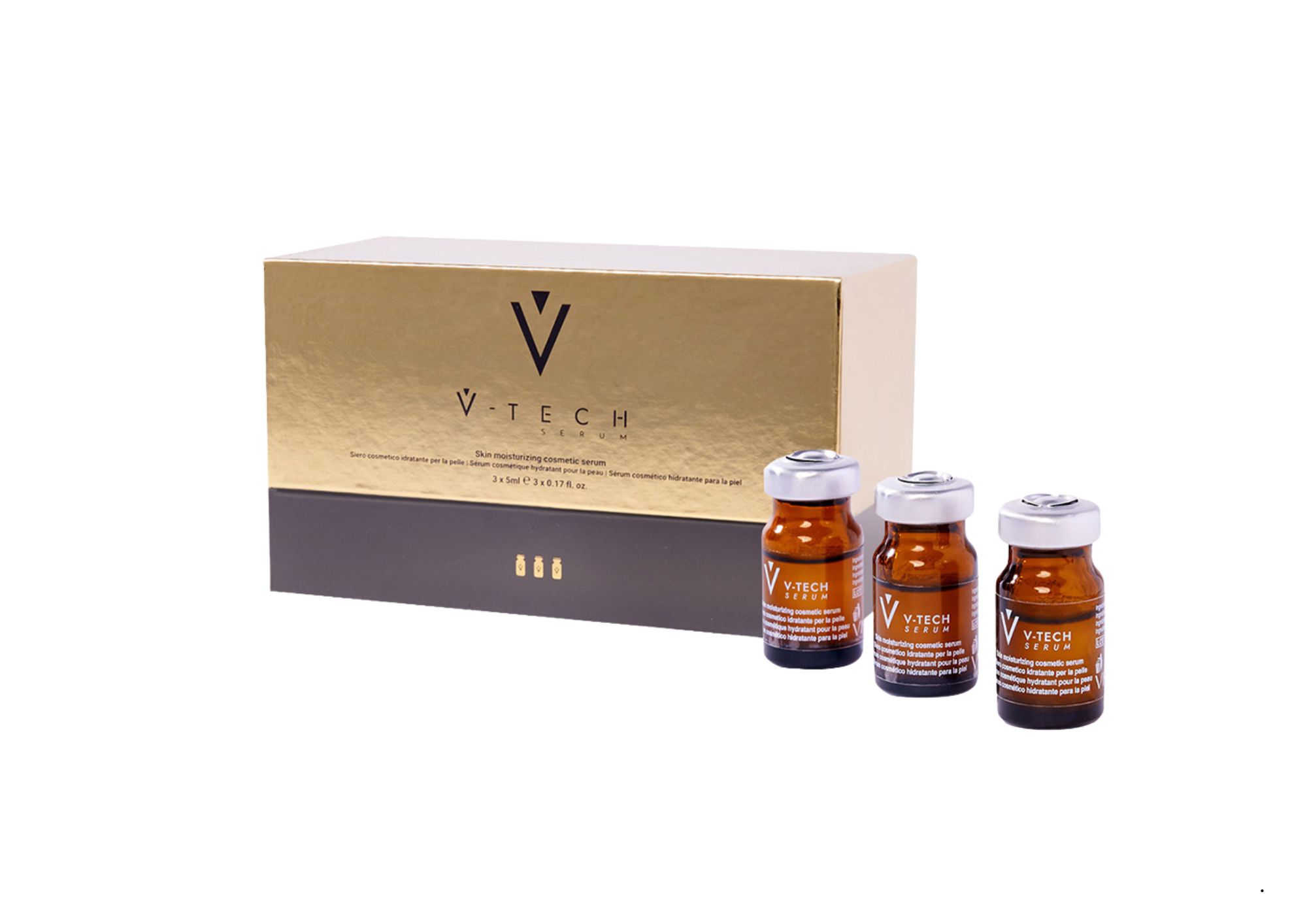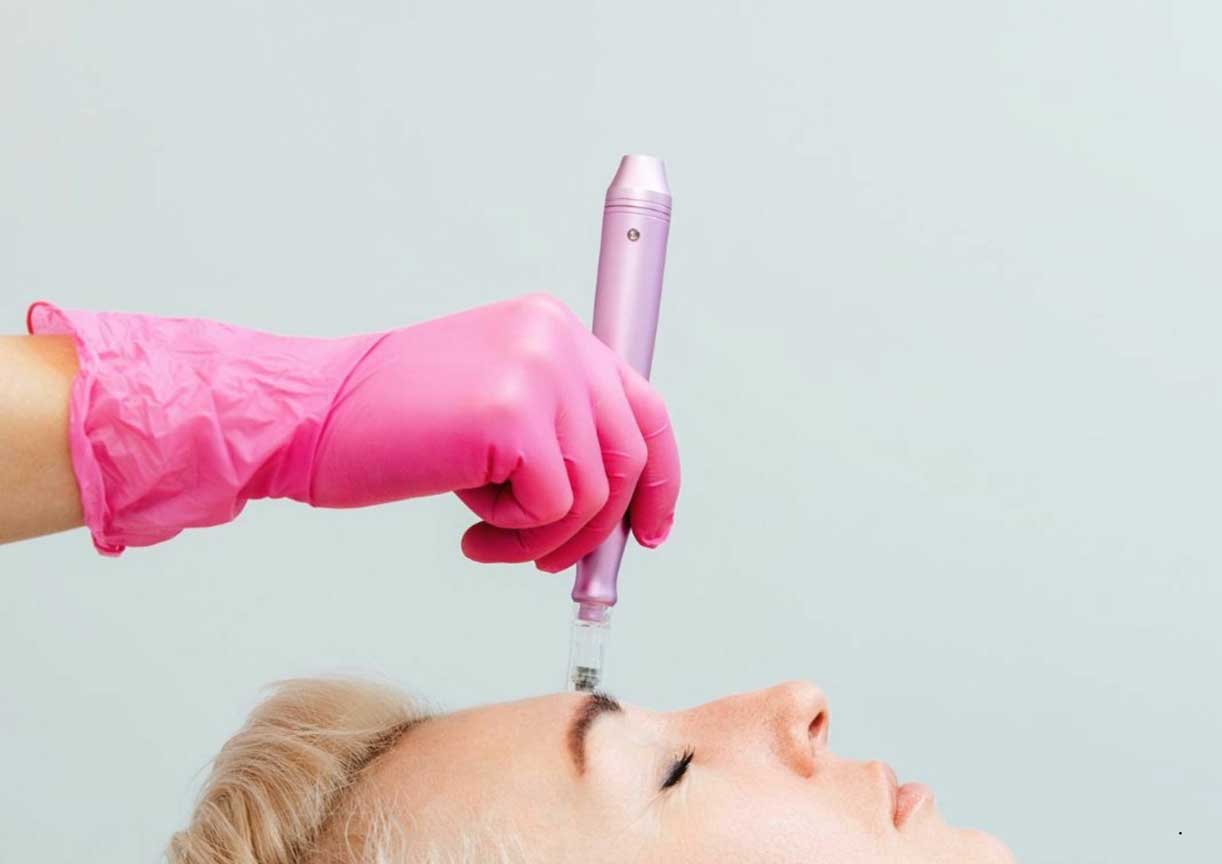Micro-Needling In Saffron Walden

Microneedling is a fantastic, minimally invasive treatment that can be used for a variety of issues, from scarring and stretch marks to pigmentation and fine lines.
It has been available at our Saffron Walden clinic for several years. Currently we provide customised, FDA-approved radiofrequency microneedling, alongside the clinically backed V-Tech Regenerative Super Serum.
Both can have a phenomenal impact on skin, which our clients can see for themselves, thanks to our state-of-the-art analysis technology.
What is microneedling?
There are several forms of microneedling – also known as collagen induction therapy. Some use lasers, others very fine needles, to create tiny wounds in the skin’s surface.
The treatment takes advantage of the skin’s healing process: microneedling stimulates natural collagen production as part of the body’s wound healing response.
It’s worth noting that any microneedling treatment should only ever affect the skin’s outer surface, there should never be any visible blood on the treated skin.

Microneedling serums
This is one of the biggest beauty trends on social media but, as with all cosmetic treatments, not everything is as cut-and-dried as it seems.
Microneedling serums act in the same way as exfoliants: they are full of microscopic pointy structures that prickle the skin, creating wounds similar to traditional microneedling.
After conducting lengthy research, we have selected medical-grade serums that are backed by scientific studies and sourced directly from trusted medical suppliers for the clients at our Saffron Walden clinic.
The benefits of microneedling treatment and serums
A wide range of skin conditions can be improved and treated using microneedling, including:
- surgical scars
- acne scars
- fine lines and wrinkles
- enlarged pores
- hyperpigmentation or dark spots
- uneven skin tone
Although microneedling is most commonly used on the face, it can be used anywhere on the body.
It can be effective against stretch marks on the thighs or abdomen, and improve the appearance of sagging skin or loose skin.
Microneedling has also proved to be effective for:
- hair growth in people with alopecia due to autoimmune disease
- excessive sweating
Preparing for your microneedling treatment
The preparations for a microneedling treatment begins around two weeks before your appointment.
You will be advised not to take medication including ibuprofen or acne treatments, such as Roaccutane.
To minimise skin sensitivity, we ask clients not to use or have the following in the two weeks before your appointment:
- laser hair removal, waxing, depilatory creams
- intense pulsed light therapy treatments on the face
- Cosmetic-grade facial peels
- Cosmetic injectables
We would also advise you to limit your sun exposure, while clients prone to hyperpigmentation should use a melanin inhibitor.
One week before your appointment, please avoid using exfoliators, acids or any retinol or vitamin A-based products.
The microneedling procedure
In a consultation, we’ll discuss your goals and ensure skin microneedling is the right fit for you and will help you achieve your skin rejuvenation end goals.
Next comes the preparation. Your skin is thoroughly cleansed and, unlike some clinics, we tend not to use a numbing cream, as our treatment does not require it.
Then, using our FDA-approved microneedling pen device, we’ll make tiny punctures in the skin, focusing on areas such as acne scars, large pores or dark patches, while incorporating our top-grade serums for enhanced results.
The number of microneedling sessions you have will depend on the skin concern being targeted. Some require multiple treatments to achieve the desired results.
FAQs
Is microneedling safe for darker skin tones?
It is. Clients who have darker skin tones choose microneedling over laser therapy because of concerns around the heat which can impact their skin pigmentation.
Are there any risks or side effects?
Although microneedling is minimally invasive, like all cosmetic procedures, there are some risks.
Minor skin irritation and redness are common side-effects, but if you experience bleeding, bruising, peeling or infection, it’s important to speak to a doctor.
Microneedling is not suitable for anyone
- with skin conditions, such as psoriasis or eczema
- with open wounds or active acne
- with a history of skin scars
- who has recently had radiation therapy
Pregnant people may need to consult their obstetrician or gynecologist before having microneedling treatment.
How long will my microneedling results last?
The results from the microneedling sessions at our Saffron Walden clinic vary from client to client. They are based on the level of their skin concern, what part of their body is affected and treatment goals.
Mild acne scars or smoothing wrinkles could require few treatments, compared to helping improve the appearance of dark spots or excess sweating.
In many instances, results last from three to six months. Whatever your skin requirements, we will create a treatment plan that works for you.
Post-treatment care
Microneedling treatment stimulates the production of new collagen in the skin by creating micro wounds. Although it sounds harsh, it is minimally invasive and has very little down time.
Soothing serums are applied post microneedling treatment, leaving your skin calm and hydrated. Expect mild redness for 24-48 hours, which can be easily managed with a tinted SPF or minimal makeup.
It’s best to let your skin heal before applying makeup, and wait a few days before spending time in direct sunlight, using products with alpha-hydroxy acids and retinols, or getting sweaty.
Staying hydrated and using a cooling mask, antioxidant serum or collagen supplements can help boost the healing process after microneedling work.

